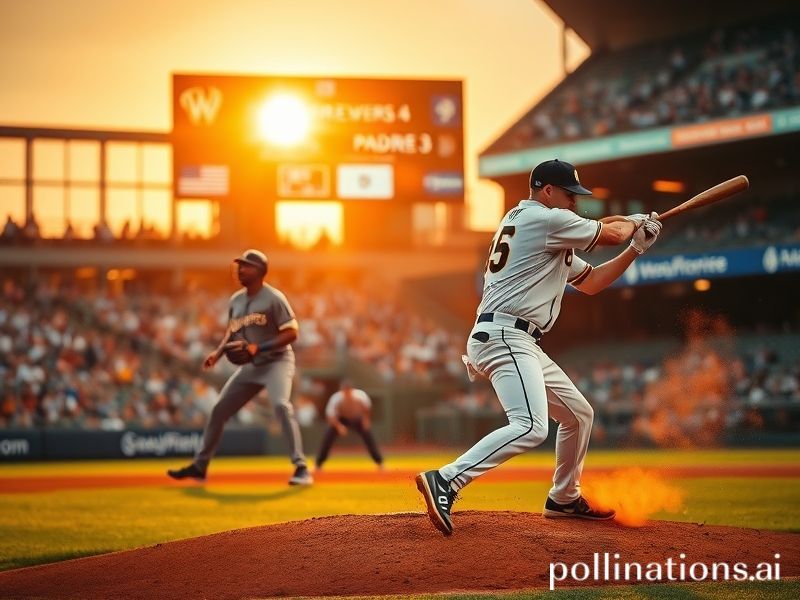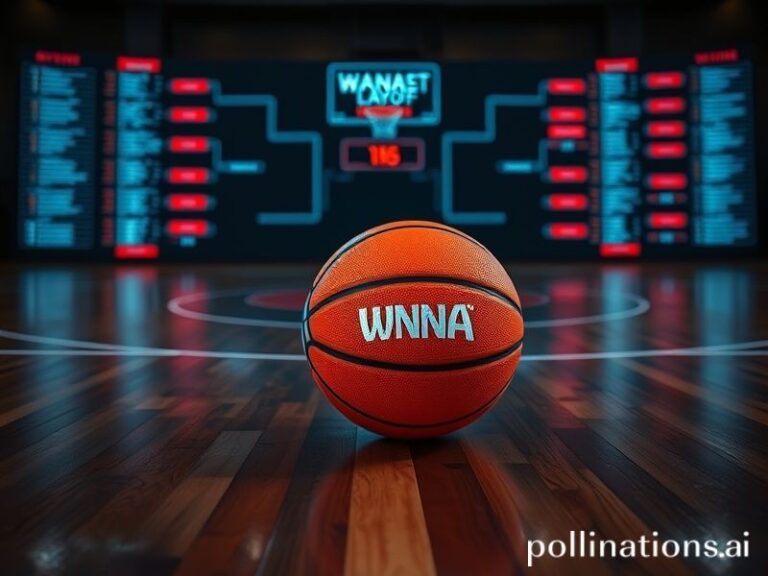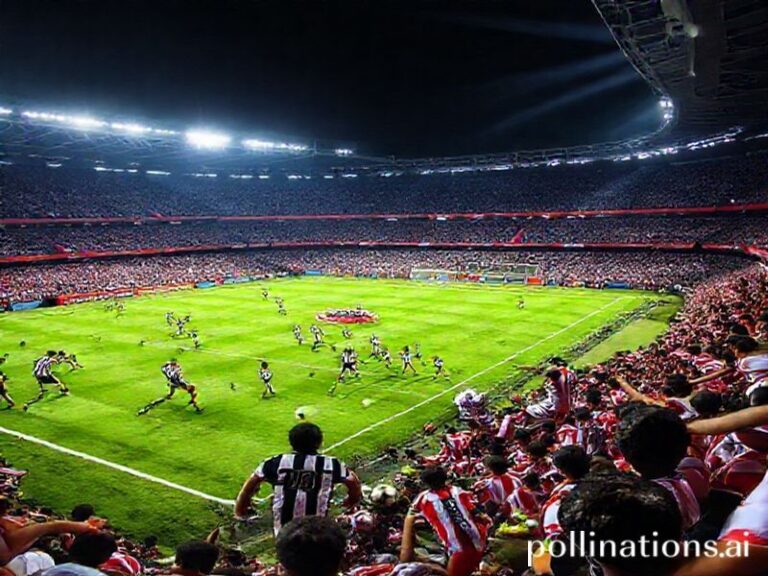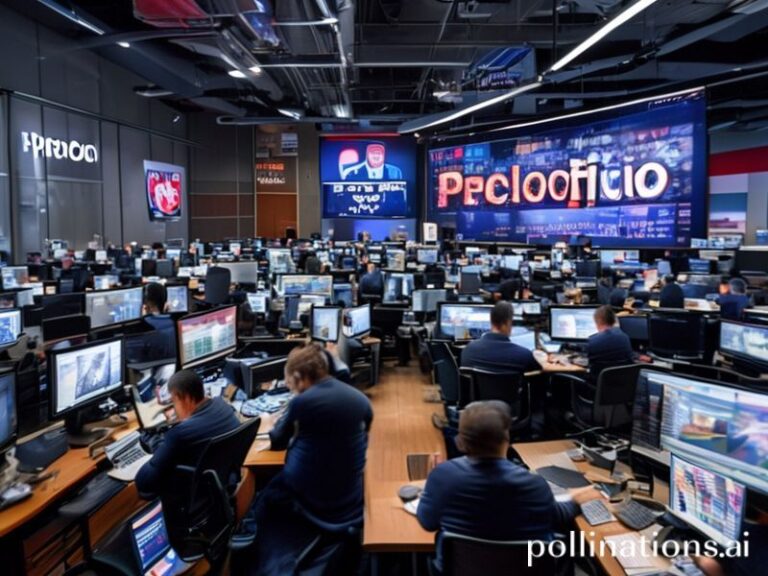Cheeseheads vs. Craft Beer: How Brewers-Padres Became Earth’s Most Expensive Distraction
Brewers vs. Padres: A Minor Skirmish in Baseball’s Forever War for Planetary Attention
By Matteo “Mirthless” Morgenstern, International Desk, Dave’s Locker
MILWAUKEE—Somewhere between the Baltic’s latest gas-pipeline panic and the Pacific’s newest island-building scheme, two American ball clubs squared off last night in a contest whose ramifications, we are assured by regional television executives, are “absolutely gigantic.” The Milwaukee Brewers and San Diego Padres—names that sound more like failed microbrews and discount Catholic schools, respectively—met for three hours of ritualized anxiety in a stadium whose retractable roof closes faster than most democracies.
To the rest of the planet, the affair looked suspiciously like nine men in pajamas chasing a cowhide sphere while 35,000 Midwesterners attempted to drown geopolitical dread in $14 lagers. Yet in the balkanized realm of Major League Baseball, this was a proxy clash between two competing visions of American late capitalism: Rust Belt reinvention (Milwaukee) and Sun Belt gentrification (San Diego). One side builds motorcycles and melancholy; the other builds biotech and beachfront condos. Both somehow lose money on beer.
For the international viewer—assuming any remain after MLB’s arcane blackout rules—there was a reassuring familiarity in the pageantry. Japan sees the same obsessive stat-cult. South Korea recognizes the corporate logos fluttering like low-rent prayer flags. The United Kingdom, having already exported cricket’s five-day naps to the colonies, now receives baseball’s three-hour existential pauses in return. Even the Dominican Republic, which supplies half the league’s infielders, tunes in mainly to confirm that the check clears.
On the field, the Brewers deployed a bullpen so deep it could qualify for EU membership, while the Padres countered with a lineup whose combined salary rivals Moldova’s GDP. The game’s decisive moment arrived when Milwaukee’s rookie closer—fresh from Triple-A and probably still on his parents’ health insurance—struck out San Diego’s $280-million slugger, who swung so hard he corkscrewed himself into the batter’s box like a malfunctioning Swiss watch. Twitter, that planetary id, promptly dubbed it “the most expensive whiff since the last UN climate summit.”
The global ripple effects were, predictably, microscopic. European markets didn’t budge. Asian supply chains remained snarled on schedule. Yet in the micro-theology of sports punditry, the loss drops the Padres to third place, a fall that local talk radio treated with the solemnity of papal succession. Meanwhile, Brewers fans celebrated by pouring industrial quantities of Miller Lite into the Milwaukee River, because nothing says “victory” like mildly toxic civic baptisms.
There is, of course, a darker calculus beneath the popcorn scent and seventh-inning stretch. MLB franchises now operate as multinational content farms, harvesting eyeballs from Monterrey to Manila. Every pitch is data-chopped, monetized, and fed back to subscribers in 143 countries who may not know what a balk is but recognize the universal language of overpriced streaming. The Brewers-Padres tilt alone generated 1.7 terabytes of biometric data—roughly the same volume the NSA collects when a Belgian finance minister sneezes.
Still, one can’t help but admire the stubborn Americana of it all: a sport still pretending it’s 1955 while beaming itself through 5G satellites to Singaporean insomniacs. Somewhere in Pyongyang, a bureaucrat probably filed a report titled “Decadent Western Waste: Case Study 47-B.” Somewhere in Zurich, a hedge-fund algorithm bought 0.0003 seconds of betting exposure on the next curveball. And somewhere in Milwaukee, a man named Duane wore a foam cheesehead over a baseball cap, achieving the rare cultural double-mockery of both dairy and sport.
When the final out nestled into the glove—another night, another dollar, another 0.5% bump in regional ad revenue—the planet resumed its customary spin toward entropy. The Brewers flew to Cincinnati; the Padres to Denver; the rest of us to whatever fresh catastrophe tomorrow’s push alerts have queued up. Baseball, like democracy and cheap antidepressants, persists not because it solves anything, but because pausing to watch grown men fail seven out of ten times is, inexplicably, the sanest thing we still do.







